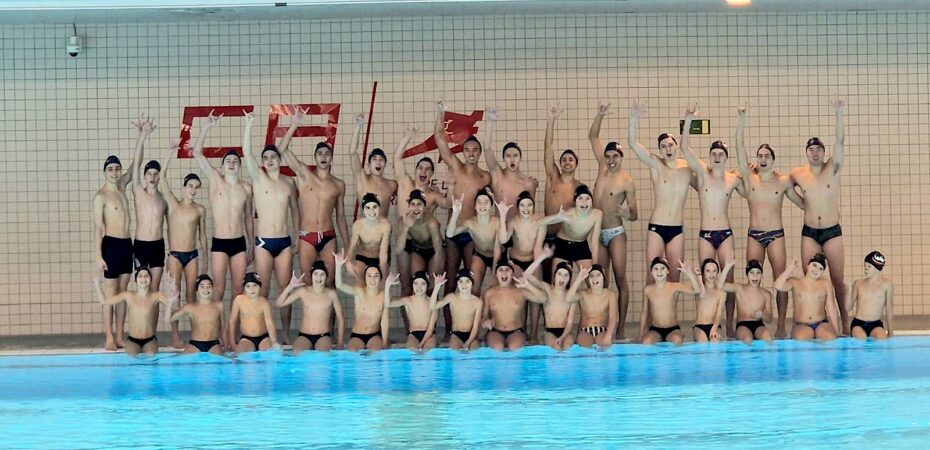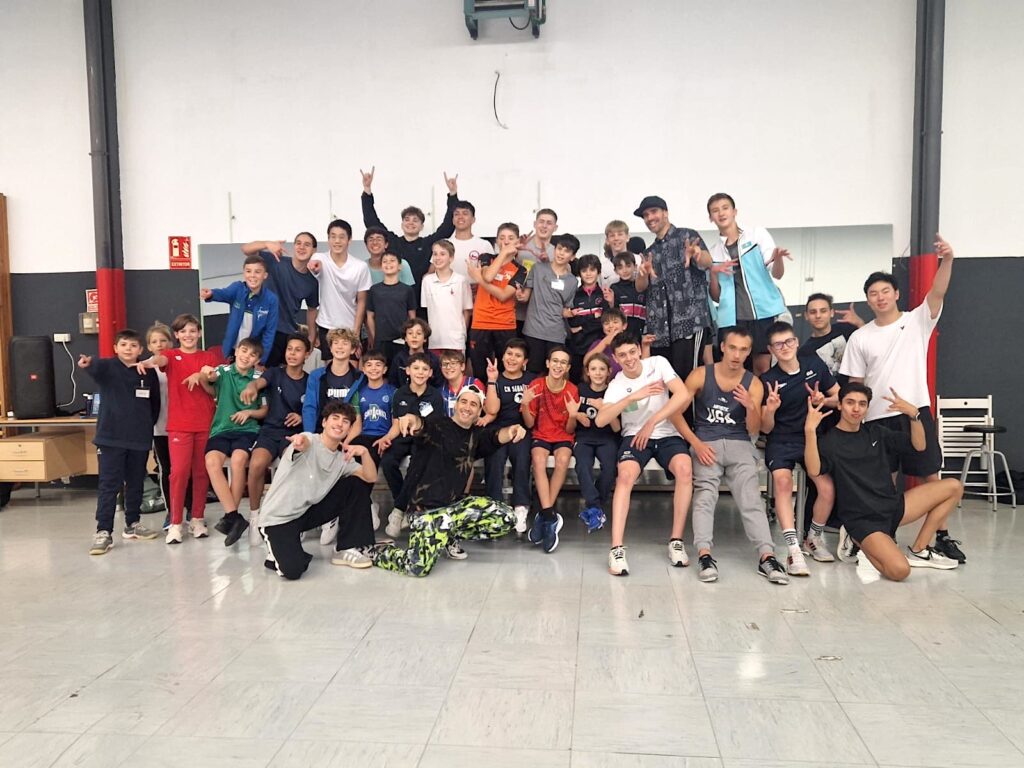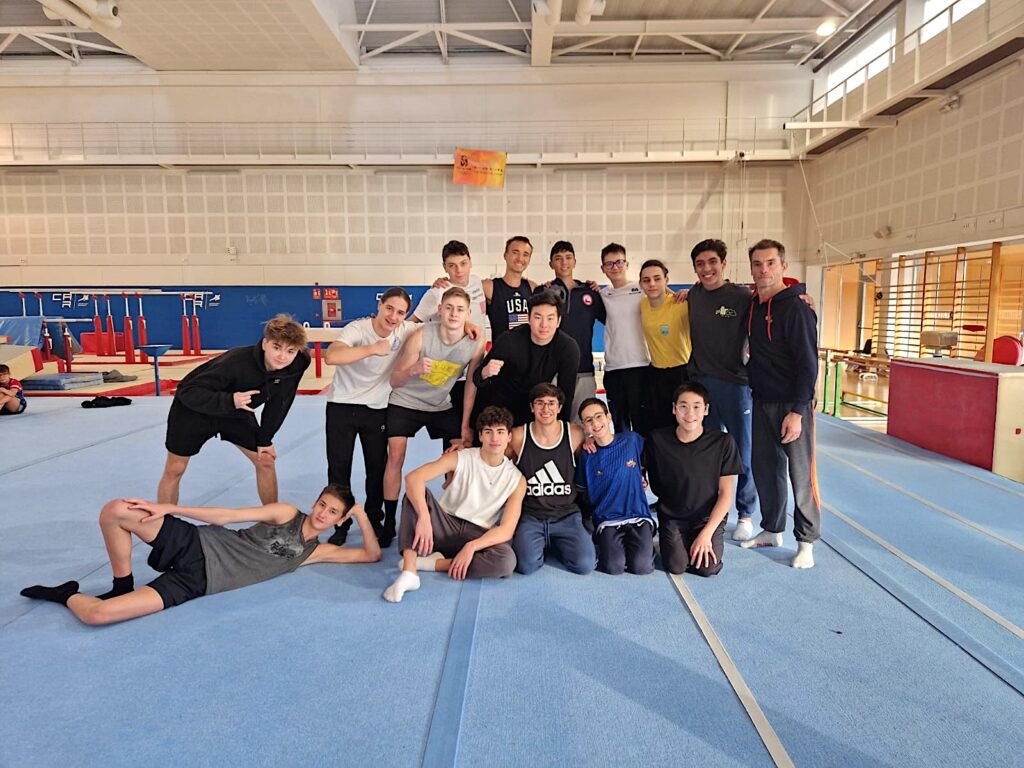It was quite the sight: a swimming pool filled with male artistic swimmers only.
Aged between 10 and 20 years old, all had been invited to the Centre d’Alt Rendiment (CAR) Sant Cugat near Barcelona to attend a groundbreaking men artistic swimming international training camp.
For three days in December, the CAR – Spain’s high-performance training center – became the epicenter of a historic moment in artistic swimming. For the first time ever, male athletes from across the globe gathered to train, collaborate, and rewrite the narrative of their sport.
Organized by the Royal Spanish Swimming Federation (RFEN), the event brought together 16 elite male swimmers from 10 countries and 20 young Spanish athletes, creating an unforgettable milestone in the inclusion and evolution of men’s artistic swimming.
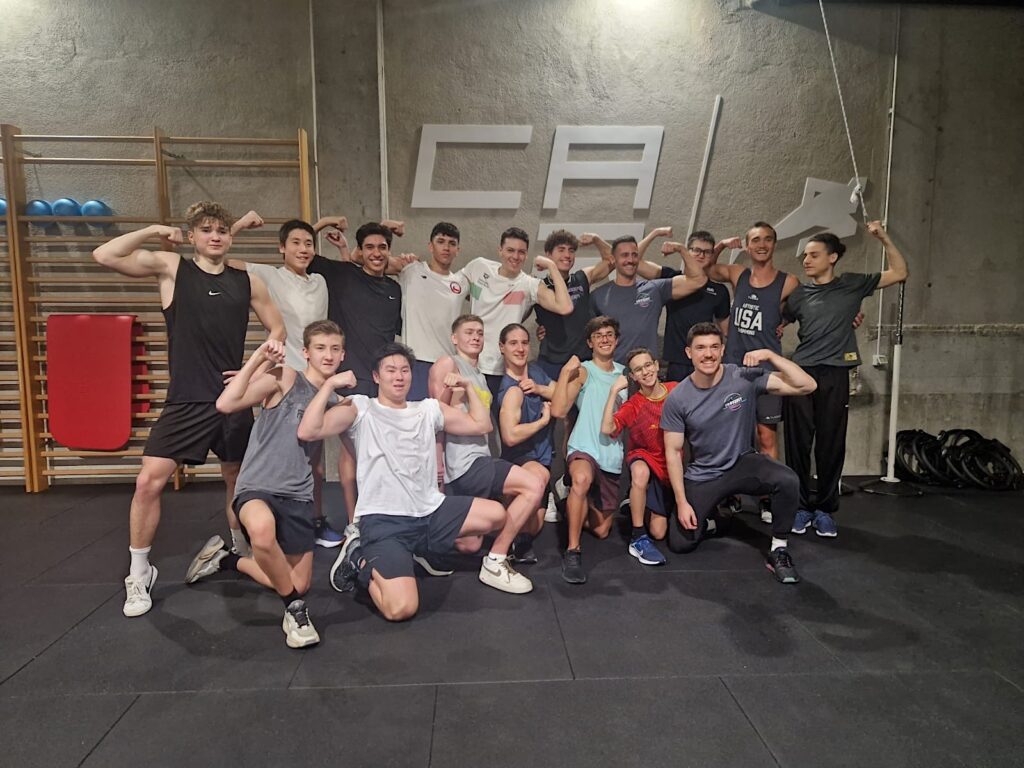
Most often, male artistic swimmers are in the minority, sometimes the lone ones in their clubs, or even their nations. They have nonetheless learned to adapt and accept the situation in the relentless pursuit of their dreams.
This time, it was all about them. This camp flipped the script, creating a space where they could thrive, surrounded by peers who shared their experiences and struggles. No longer sidelined or overshadowed, they took center stage, showcasing their potential, solidarity, and shared passion for the sport.
From technical drills and acrobatics to contemporary dance and choreography, the athletes explored the full spectrum of artistic swimming. Athletes collaborated on groundbreaking lifts, transitions, and other hybrids that showcased their unique strength and athleticism.
“The energy was explosive,” said Andrea Fuentes, head coach of the Spanish national team. “It was amazing to see them not just training but building something together. They went from being competitors to a united team. And for the first time, they were not the lone men fighting for inclusion, but the main characters.”
World and European medalists like Dennis Gonzalez Boneu (Spain), Filippo Pelati (Italy), Ranjuo Tomblin (Great Britain), Eduard Kim (Kazakhstan), Diego Villalobos (Mexico) and Kenneth Gaudet (USA), as well as up-and-comers like Guo Muye (China), Nicolas Campos (Chile) and David Martinez (Sweden), amongst others, were in attendance.
The final exhibition featured routines built entirely by the participants, with each athlete contributing a piece of choreography, integrating their individual styles while collaborating on a shared vision for the sport’s future.
“It was incredible to watch their individual styles come together,” Fuentes said. “They were really feeding off each other, the energy was so different. That created such a sense of, like we were building kind of a family, a gang of support between some people who have been fighting alone for so long. This was, for me, the biggest gift. At the end of the last day, it felt like they had known each other and worked together for years.”
For many, the experience was transformative, and exceeded expectations.
“It was an amazing opportunity to work alongside some of the best male swimmers in the world,” said Ranjuo Tomblin, reigning European Champion in solo free. “Personally, this was such a dream training with them. It was different to swim with all boys as I’m used to being the only one! It is a huge step towards being a more equal sport. So, let’s hope that this camp shows that there are males in the artistic swimming community, that we are growing and that we want inclusion and equality.”
This international training camp also coincided with RFEN’s annual national boys’ camp, aimed at young swimmers and their coaches.
For the past five years, RFEN has organized such national training camps, known as “Jornadas Técnicas Masculinas” with three primary objectives: to show male athletes that they are not alone; to gather data on the number of active male swimmers in Spain; and to provide a collaborative environment where athletes and coaches can train, develop educational exercises, enjoy the sport, and identify emerging talent.
This year, the international element brought an entirely new level of motivation. The young boys, aged 10 to 14, watched and interacted with some of the best male athletes in the world, and got to enjoy everything the national team training center had to offer.
“It was a super cool experience because I met lots of boys from other clubs and the world,” said Aran Caballero, 10, from the club of C.N Sabadell. “I also learned lots of things, and improved my technique for barracudas and other scullings.”
“I also enjoyed the trainings a lot,” added Sabadell teammate Isner Alejandro Alban, 10. “It was so cool to visit the pool and the installations where the national team works!”
Training alongside the international stars created a powerful sense of community. The boys witnessed firsthand the strength, skill, and joy that these accomplished athletes brought to the water, inspiring them to believe in their own paths.
For all athletes in attendance, the camp was an affirmation that they belong to a broader, supportive global network of male artistic swimmers. The combination of talents and nationalities created an unparalleled atmosphere of learning, mentorship, and camaraderie.
“This camp has been great, something historic, I’ve had a lot of fun, to be honest,” Diego Villalobos, three-time World Junior Champion, told RFEN. “I didn’t know that in Spain there were so many little kids! We saw in their faces that they were very motivated. There has never been a camp of this style even for the girls, and I think it is something that is going to serve us all because we are growing together. We are a new generation and hopefully it will help us unite. ”
The camp was also more than a training ground—it was a statement. It signaled a collective commitment to seeing men compete in artistic swimming at the highest level, including the Olympics.
“We have to prepare them, it starts today for LA 2028,” Fuentes said. “It was amazing to see the unity and support amongst each other, but this is also about the bigger mission. We all want to see men in the Olympics but we cannot pretend to have them if we do not prepare them. So, it starts with giving them the same opportunities as the women, if not more. They deserve to feel part of the whole journey, to realize that they are not alone. We all want it, and we are taking action.”
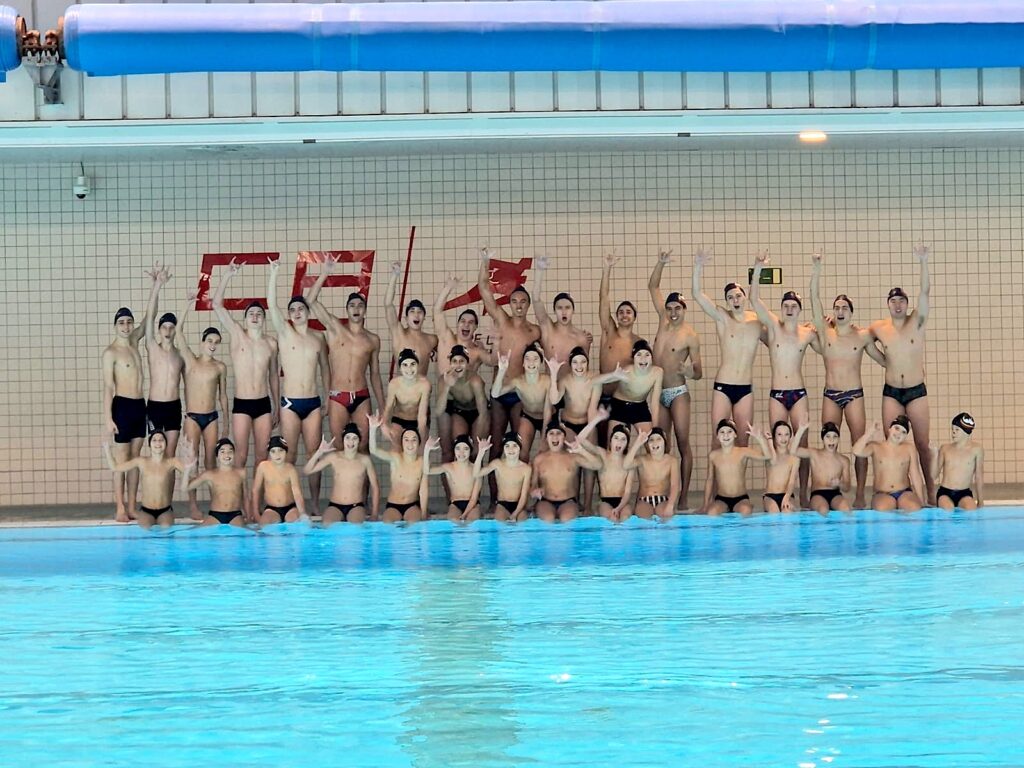
RFEN Artistic Swimming Technical Director Ana Montero, who spearheaded this camp, echoed the sentiment, emphasizing the sport’s potential with the increased participation of male artistic swimmers.
A member of the World Aquatics Technical Artistic Swimming Committee as well, Montero also recognized the necessity of including mixed duets in the Olympics programme, and has been a key actor in making proposals to the deciding institutions to make it happen.
“We are even more sure of the potential this sport has with the increase of male athletes,” she said. “One of the things I told the boys was that we need to keep writing the history of this path. They have to be a community who are responsible for pushing this forward. We need mixed duets to be in the next Olympic Games, so we all make sure we, yes or yes, will have men competing there. This is our vision, and we hope the world shares it with us.”
As the participants left Barcelona, their shared mission was clear: to grow the sport, inspire the next generation, and prove that artistic swimming thrives when men and women compete together.
The training camp’s success ignited a collective determination to continue pushing the boundaries of artistic swimming. From new rules in 2025 enhancing the mixed duet events to the possibility of mandatory male inclusion in Olympic teams, the future of men’s participation in artistic swimming looks brighter than ever.
As Montero aptly summarized, “Rules and competitions are what help the countries grow and go forward. We have the opportunity to double our athletes, to double our audience, to double our fans and followers, to make history. We have the power to inspire, to push people to be brave and try, this is what life is about.”
ARTICLE BY CHRISTINA MARMET
All photos courtesy of Ana Montero / RFEN.
If you’ve enjoyed our coverage, please consider donating to Inside Synchro! Any amount helps us run the site and travel costs to cover meets during the season.

